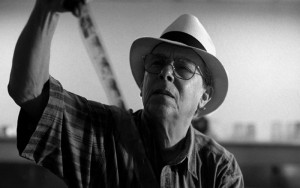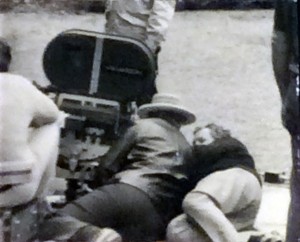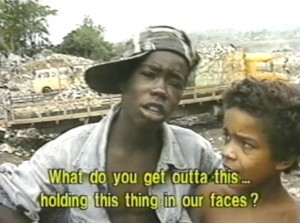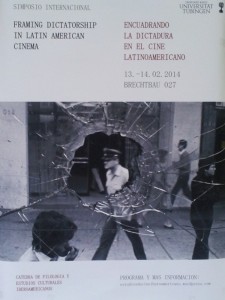A chance encounter with Kiarostami
In May 2005 I bought a new pocket-sized video camera. The next day I took it with me to try out when I went to visit Kiarostami’s installation, ‘Forest Without Leaves’, at the Victoria & Albert Museum, and as I was filming, Kiarostami himself appeared. (After I shut off the camera, another figure appeared – Ken Loach. We chatted and then went all together to look at Kiarostami’s photos in another room.) I didn’t do anything with the footage, since after all, it was only a test, and I hadn’t yet mastered the camera, but I offer it here in modest homage to this most remarkable of filmmakers. The rare kind who keeps you believing in the power of cinema to refashion our perception of the world that the other kind of cinema blocks out.
[vimeo]https://vimeo.com/173587645[/vimeo]




